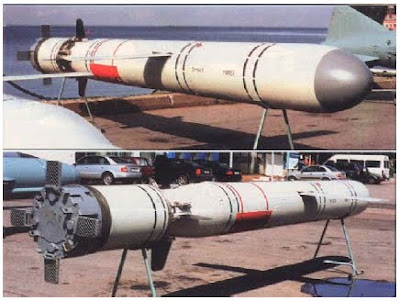 Kilo class submarine (photo : pbs)
Kilo class submarine (photo : pbs)However, the global economic downturn has greatly amended plans of the Indonesian submariners. Last year during his visit to Russia, Mr Yusron Ihza, deputy chairman of the Defence Commission on political, security and foreign affairs in the House of Representatives of Indonesia, intimated the procurement of three Kilo class diesel electric submarines. Contracts for the procurement of the submarines must be financed out of the proceeds of a credit to be granted by a supplier state. Indonesia has recourse to such a mechanism as its defence budget makes up only 0.8 per cent of the gross national product, which is insufficient for the procurement of modern armaments albeit this year it has four billion USdollars earmarked for this purpose. Because of the scanty financing the Indonesian Navy has had to cut the initial number of submarines planned for construction.
 Kilo class cutaway (photo : Militaryphotos)
Kilo class cutaway (photo : Militaryphotos)At the first stage of the programme a tender for the procurement of two submarines was invited. German Howaldswerke-Deutche-Werft and French DCNS companies were the first to announce their participation in the tender at the very beginning. However, the most serious competition started unwinding between two main contenders in the bidding - South Korean and Russian shipyards. South Korean Daewoo Shipbuilding and Marine Engineering Company has offered two 1,400-tonneType 209 diesel-electric submarines of German design already taken out of production in Germany. Russia has offered the Kilo class large diesel-electric submarine.
The Kilo class large diesel-electric submarine offered by Federal State Unitary Enterprise (FSUE) Rosoboronexport for the tender has unique performance characteristics and combat capabilities. Kilo's advantages are duly appreciated by navies of India, China, Poland, Algeria, Iran and other countries. It is designed to effectively destroy any potential enemy's submarines, surface ships and coastal targets, when operating both autonomously and within a naval force. The submarine is powered by uprated diesel generators allowing a substantial increase in underwater speed and endurance extended up to 7,500 n.m. It is one of the world's most quiet diesel-electric submarines capable of performing guaranteed preemptive detection and delivering attacks on the enemy at long ranges, or performing evasive manoeuvres and becoming imperceptible for non-friendly ships.

Club missile brochure (image : Novator)
The Kilo class submarine armed with the Club-S missile weapon system has a substantially enhanced combat effectiveness. The system is designed to destroy all types of enemy surface ships, submarines and coastal targets with cruise missiles, while conducting combat operations in conditions of intensive electronic countermeasures and counter-fire. There are yet no analogues to the Club-S missile system in the world. This long-range missile system (up to 275 km) makes the diesel-electric submarine much better adapted for carrying out missions against high-speed targets, and more combat-resistant to enemy counteraction. If employed extensively, the Club-S missile system can drastically change the outcome of naval operations in favour of its carrier.
Another equally important aspect of the programme concerns terms of payment. The Rosoboronexport is now realising a very practical and efficient scheme. The intergovernmental agreement on granting a one billion US dollar credit to Indonesia for the procurement of Russian defence equipment was signed in 2007. Within the framework of this agreement Jakarta has already started taking delivery of the BMP-3F infantry combat vehicles and Mi-type helicopters. The terms of this credit can also be extended in case that the tender for diesel-electric submarines construction is won. The credit repayment period would then take 10 years with a five-year adjournment of the first payments, that is until 2012.
 Above : The subsonic 3M54E1's two stage motor gives it a long reach of 300 km. Below : The first-stage booster of the 3M54E1 missile (photo : dtig)
Above : The subsonic 3M54E1's two stage motor gives it a long reach of 300 km. Below : The first-stage booster of the 3M54E1 missile (photo : dtig)
Russia has rich history of cooperation with the Indonesian Navy. Until the end of the 1990s the Indonesian underwater fleet had operated Soviet-made Project 613 diesel electric submarines. Russia remains a leading naval shipbuilding nation. There are about 160 enterprises including shipyards, research institutes and design bureau as well as maritime machine-building, instrument making and electronic plants. The Russian shipbuilding industry can design and develop all types of military surface and underwater ships and auxiliary vessels, as well as naval weapons and technical facilities. Multiple factors such as advanced maritime science, shipbuilding and design technologies, large scale industrial base, highly skilled personnel and long-time experience in foreign economic relations, allow Rosoboronexport to maintain leading positions in the international naval exports. Thus, the last year’s exports of naval weapons and equipment amounted to about 14 per cent of all foreign military sales by Rosoboronexport, the leading state intermediary agency for military technical cooperation with foreign countries.
(Asian Military Review)











Tidak ada komentar:
Posting Komentar